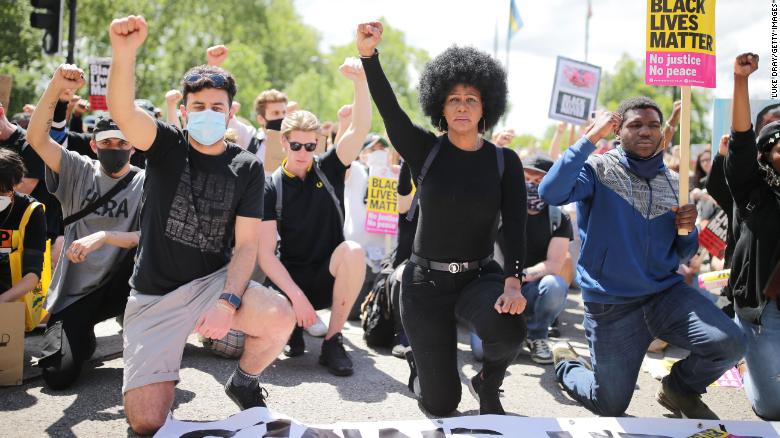
London A group of United Nations human rights experts on Monday strongly condemned a recent British government-backed report into institutional racism, saying it offered “no evidence” to support its finding that the UK is not institutionally racist.
“In 2021, it is stunning to read a report on race and ethnicity that repackages racist tropes and stereotypes into fact, twisting data and misapplying statistics and studies into conclusory findings and ad hominem attacks on people of African descent,” the independent UN Working Group of Experts on People of African Descent said in a statement.
It called on the British government to “categorically reject” the findings of the Commission on Race and Ethnic Disparities report, which was commissioned in the aftermath of last year’s Black Lives Matter protests.
When the controversial report was released at the end of March, it was deemed a “whitewash” by racial equality advocates.
Policy experts at the time also pointed to glaring holes in its analysis. They said disparities — such as why ethnic minorities were disproportionately dying of Covid-19 as well as labor market discrimination — were explained away in the report by other factors, such as geography, living conditions and social income, while ignoring the role race played in determining those disparities.
The UN working group said Monday that the report not only provided “no evidence” of its claim that the UK was not institutionally racist, but made “shocking misstatements and/or misunderstandings about data collection and mixed methods research,” and also attempted “to delegitimize data grounded in lived experience while also shifting the blame for the impacts of racism to the people most impacted by it.”
In response, a commission spokesperson told CNN in a statement that the UN had “grossly misrepresented the report’s findings, and appears to be a response to negative press coverage rather than the substance of its content.”
“The misleading claims they have made risk fostering division on the subject of race, rather than constructive discussion on the issues,” the commission’s spokesperson said, adding that they urge the British government to implement the report’s 24 recommendations.
‘Reprehensible’
In the statement, the working group said racial disparities in the UK reflected “specific nodes of power and decision-making by employers, teachers, and others who dictate the opportunities and advantages available to people of African descent,” adding that “too often this decision-making reflects legacy mindsets of racial hierarchy.”
“In other words, institutional racism, structural invisibility, and longstanding inequalities have disproportionately impacted people of African descent living in the UK,” it added.
The working group said it was “reprehensible” that the report suggested a new school resource where children be taught about the “Caribbean experience which speaks to the slave period not only being about profit and suffering but how culturally African people transformed themselves into a re-modelled African/Britain.”
The UN experts called this “a deliberate attempt at historical misrepresentation” by the commission “to silence the brutal role of enslavers, the mind-numbing generational wealth they accrued, and the social capital and political influence they gained from exploiting Black bodies.”
“The Report’s sanitized version of history devalues the experiences, and deaths of millions of Africans who were violently uprooted, taken to the Americas where they were further exploited, brutalized and dehumanized,” they added.
They also took aim at the report for attributing poor outcomes for some minority groups to family breakdown. “Therefore, the suggestion that family structure, rather than institutionalized and structural discriminatory practices are the central features of the Black experience is a tone-deaf attempt at rejecting the lived realities of people of African descent and other ethnic minorities in the UK,” the working group wrote.
>>>>

